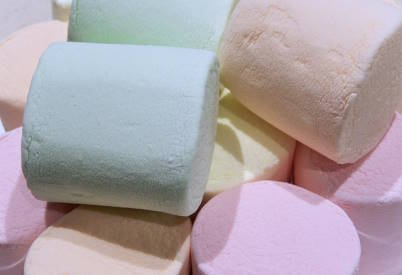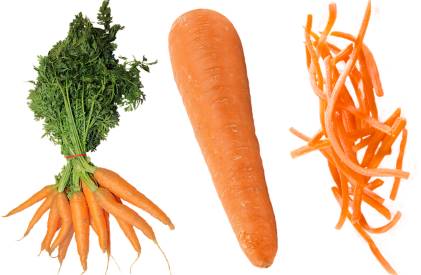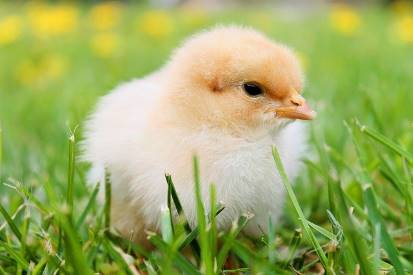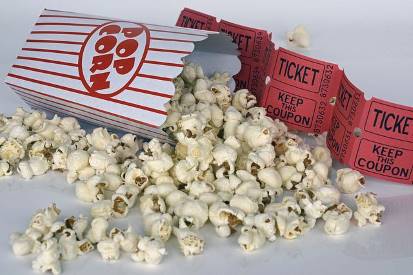As a chicken owner, you may often find yourself wondering, can chickens eat marshmallows? Well, the short answer is yes, they can. However, just because they can doesn’t necessarily mean they should, at least not regularly.
I know from experience how tempting it is to share our human treats with our feathered friends. After all, they’re part of the family, and we want them to partake in the joy of our snack times. Yet, as I’ve learned over the years, not all human foods are beneficial or safe for chickens.
Marshmallows, for instance, are a classic sweet treat that many of us love. They’re fluffy, sweet, and simply irresistible. But when it comes to our chickens, we must consider what’s in these treats and how they could impact our birds’ health. Now, let’s dive deeper into the subject and examine why marshmallows should be limited in a chicken’s diet.
Understanding a Chicken’s Diet
Chickens are known for their omnivorous diet. They can eat a variety of food items, and that’s what makes their diet versatile and interesting. Let’s delve into it.
Overview of a Chicken’s Normal Diet
Chickens are not too picky with their food. They eat a balanced diet of grains, vegetables, fruits, and even insects. The feed you buy at a local pet store is usually composed of a mixture of these, offering a wide spectrum of nutrients.
The Role of Treats in a Chicken’s Diet
Just like us, chickens enjoy a good treat from time to time. Treats are a fantastic way to bond with your chickens but also serve as nutritional supplements. But treats should never make up more than 10% of a chicken’s diet.
[ChickenAffiliate]
Marshmallows: What are they made of?
The fluffy, white, sweet delight known as the marshmallow is often a favorite among kids and adults alike. But have you ever wondered what goes into this soft confection? Let’s break down the ingredients.
Understanding Marshmallow Ingredients
Marshmallows, as simple as they may seem, contain specific ingredients that give them their unique texture and taste. Here’s what you’ll typically find in your store-bought marshmallows.
- Sugar: The primary ingredient in marshmallows is sugar, which contributes to their sweet taste. Sugar, usually in the form of granulated sugar, corn syrup, or a combination of both, is mixed with water and heated to create a sugar syrup.
- Gelatin: Gelatin, derived from collagen, a protein often sourced from animal bones and skin, gives marshmallows their distinctive squishy texture. It acts as a stabilizer and helps the marshmallow mixture hold its shape once cooled.
- Water: Water is mixed with sugar to create the base syrup. The gelatin is also dissolved in water before being combined with the syrup.
- Air: Yes, air! Whipping the mixture introduces air into it, giving marshmallows their light, fluffy texture.
- Cornstarch or powdered sugar: These are used to coat the marshmallows to prevent them from sticking together in the package.
Nutritional Value of Marshmallows
Marshmallows are a low-fat treat, but that doesn’t necessarily make them a healthy choice. Their high sugar content makes them rich in calories but poor in nutrients. They offer minimal protein, no dietary fiber, and no vitamins or minerals.
In short, while marshmallows might provide a quick energy boost due to their high sugar content, they contribute little to a nutritious diet.
Marshmallows and Food Coloring
Some marshmallows, especially the colored and flavored varieties, contain additional ingredients like food coloring and artificial flavoring. It’s important to note that while these ingredients are generally regarded as safe for human consumption, they may not be ideal for chickens, and their impact on chickens’ health is largely unknown.
Potential Effects of Marshmallows on Chickens
As we’ve now established, marshmallows are high in sugar and lacking in nutritional value, which might make you wonder about their potential impact on your chickens’ health. Let’s delve deeper into this.
Sugar and Chickens: Can Chickens Process Sugar?
While chickens can process some sugar in their digestive system, it’s not beneficial. Chickens, like other birds, don’t have a sweet tooth. They lack the taste receptors for sweetness that we humans have.
Consequently, their bodies aren’t designed to handle a sugar-rich diet. Overconsumption of sugar can lead to obesity and related health problems in chickens, just like in humans.
Short-term Effects of Feeding Chickens Marshmallows
Like humans, eating a high-sugar treat like marshmallows could lead to certain immediate effects in chickens.
- Behavioral Changes: If you’ve ever seen a child hyped up on sugar, then you might have an idea of what a chicken might act like after consuming marshmallows. The sugar rush could increase activity, and they might appear more active or ‘hyper’ than usual.
- Digestive Issues: Chickens aren’t used to high-sugar diets. Consequently, a sudden influx of sugar in their system from eating marshmallows could potentially upset their digestive system. This could manifest as loose stools or changes in appetite.
- Taste Preference Changes: While chickens can’t taste sweetness as humans can, the texture and easy-to-eat nature of marshmallows may result in chickens developing a preference for them over their regular feed.
Long-term Effects of Marshmallows on a Chicken’s Diet
Feeding marshmallows to your chickens consistently over a long period could lead to some serious health issues.
- Obesity: One of the main concerns of a high-sugar diet is obesity. Chickens that consistently eat foods high in sugar, such as marshmallows, can quickly gain weight. Obesity in chickens can lead to a host of health problems, including heart disease and joint issues.
- Decreased Egg Production: Obese chickens often have decreased egg production. The excess weight can strain their bodies, affecting their ability to lay eggs regularly.
- Shortened Lifespan: Over time, the health issues caused by consistently consuming high-sugar foods like marshmallows can shorten your chickens’ lifespan.
- Nutritional Deficiencies: Marshmallows are pretty much devoid of nutrients. If your chickens fill up on marshmallows, they might eat less of their regular feed, leading to nutritional deficiencies.
- Impact on Dental Health: Like humans, consuming too much sugar can lead to dental issues in chickens. Over time, excessive sugar can cause deterioration of the beak, similar to tooth decay.
Alternatives to Marshmallows for Chicken Treats
If not marshmallows, then what? Don’t worry; there are plenty of healthy alternatives.
List of Healthy Chicken Treats
Fruits and vegetables make great treats for chickens. Apples, melons, bananas, and berries are just a few examples. On the vegetable side, chickens can enjoy carrots, peas, and leafy greens.
Using Chicken Feed as Treats
As an alternative, you can also use chicken feed as treats. These feeds are nutritionally balanced and are ideal for a chicken’s health.
Safe Practices when Feeding Chickens Treats
Feeding treats to your chickens isn’t just about what to give them but also how and when.
Quantity Considerations when Feeding Treats
As mentioned before, treats should never make up more than 10% of a chicken’s diet. Feeding too much can lead to obesity and other health issues.
Timing and Frequency of Treats
Treats are best given in the late afternoon when chickens have had their fill of regular feed. This ensures they get all their essential nutrients before having their treat.
Frequently Asked Questions about Feeding Marshmallows to Chickens
It’s completely natural to have many questions about the dietary needs of your chickens, especially around unusual food items like marshmallows. Let’s tackle some of the most common questions that chicken owners often ask.
Can Baby Chicks Eat Marshmallows?
While baby chicks might technically be able to eat marshmallows, it’s not advisable. Baby chicks require a balanced diet rich in proteins and other nutrients to support their growth. A high-sugar, low-nutrient food like marshmallows can upset their delicate digestive system and lead to nutritional deficiencies. Instead, baby chicks should be given specially-formulated chick starter feed.
Can Marshmallows be Used as Training Treats?
Yes, marshmallows can technically be used as training treats due to their enticing texture and taste. However, using healthier, nutritious treats for training is much better. Training is a great opportunity to supplement your chicken’s diet with beneficial nutrients, so consider alternatives like fruits, vegetables, or specially designed chicken treats.
Can I Feed Marshmallows to My Chicken Every Day?
Feeding marshmallows to your chickens daily is not recommended due to their high sugar content and lack of nutritional value. Consuming marshmallows daily could lead to health issues such as obesity, decreased egg production, and potential nutritional deficiencies in your chickens.
Are Marshmallow Fluff or Mini Marshmallows Safe for Chickens?
While marshmallow fluff or mini marshmallows may seem like a softer, more manageable treat for your chickens, they still have the same high sugar content as regular marshmallows. Therefore, they carry the same risks and should only be given sparingly, if at all.
Can Chickens Choke on Marshmallows?
While it’s unlikely due to marshmallows’ soft, squishy nature, there’s always a slight risk of choking when feeding your chickens any kind of treat, especially if they’re not used to it. To be safe, you could consider cutting the marshmallows into smaller pieces.
What Other Snack Foods Can Chickens Eat?
While marshmallows might not be the ideal treat for chickens, there’s a world of other snack foods you might be considering. Let’s explore five common snack foods and discuss their suitability for your feathered friends.
Popcorn
Believe it or not, chickens can safely eat popcorn. Unflavored, unsalted popcorn makes for an interesting treat, providing texture and fun as chickens peck at it. However, avoid buttered or salted popcorn, as the excess salt and fats are bad for chickens.
Read More: Can Chickens Eat Popcorn? Fun Facts And Feeding Tips
Raisins
Raisins, or dried grapes, are another snack that chickens can eat. They are high in sugar, so they should be given sparingly, like other sweet treats. It’s best to offer them soaked, as this can help prevent potential choking.
Read More: Can Chickens Eat Raisins? Surprising Facts & Alternatives
Honey
While honey is safe for chickens, it’s a high-sugar food, much like marshmallows. As such, it should only be given in moderation. Honey does have some antimicrobial properties, but the high sugar content can outweigh the benefits if offered too often.
Read More: Can Chickens Eat Honey? 5 Amazing Benefits
Chocolate
Chocolate is a big no-no for chickens. It contains theobromine and caffeine, two substances that can be toxic to chickens. Even a small amount can cause serious health issues, so it’s best to keep all chocolate out of reach of your flock.
Read More: Can Chickens Eat Chocolate? Unraveling The Truth
Candy
Like marshmallows, most candies are high in sugar and offer little to no nutritional value. Hard candies also pose a choking risk. Therefore, skipping candy as a treat for your chickens is best.
Read More: Can Chickens Eat Candy? Why It’s Not A Good Idea
Can chickens eat marshmallows – final thoughts
So, can chickens eat marshmallows? We’ve journeyed through the fluffy world of marshmallows and discovered that while these sugary treats might be irresistible for us humans, they might not be the healthiest choice for our feathered friends. Sure, the occasional marshmallow won’t harm your chickens, but as we’ve learned, it’s vital to be mindful of the potential health impacts of a high-sugar diet.
Instead of reaching for the marshmallow bag next time, why not try some healthier treat options? Apples, berries, peas, and even grains can be a nutritious and exciting change for your chickens. And remember, when it comes to treats, moderation is key. After all, we want our chickens to live a clucking good life, don’t we? So let’s aim to make every treat count in favor of their health.






